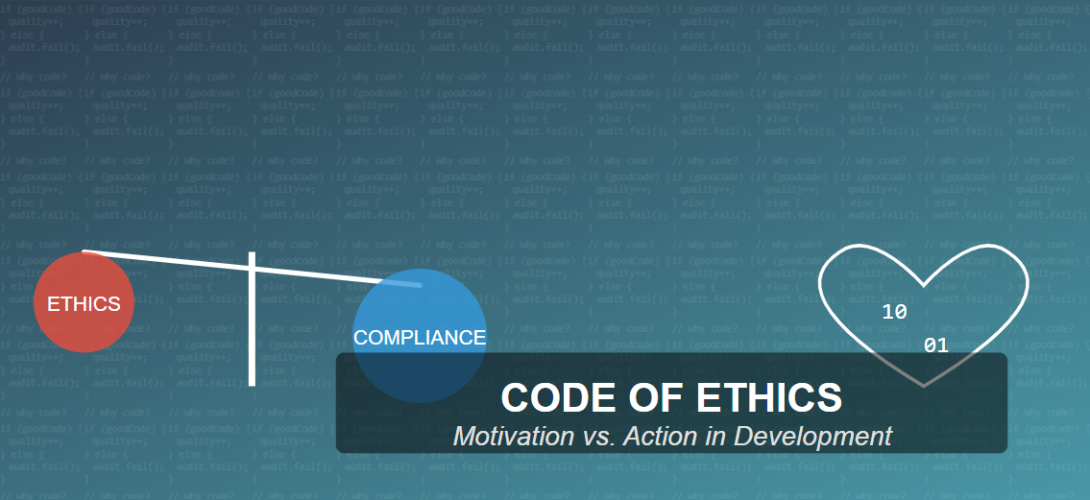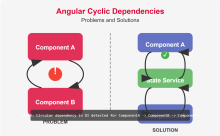In software ethics, few questions probe as deeply into professional conduct as this: Is a development team that follows best practices solely to avoid penalties or project failure truly "good"? This fundamental inquiry forces us to confront the very essence of professional ethics and what it means to be a responsible tech company in our digital world.
The Motivation Behind Development Practices
When we observe a software team adhering to industry standards and best practices, we see only the external manifestation of their decision-making process. What remains hidden is perhaps more crucial—the internal landscape of motivation that drives these actions. Consider two development teams that both implement rigorous security protocols. One does so out of genuine commitment to user protection and data integrity, while the other implements the same measures solely to avoid legal liability or negative publicity from a potential breach. Though their codebases appear identical, the motivational foundations differ profoundly.
Ethical frameworks in professional settings suggest that actions only possess true professional merit when performed from a genuine commitment to craft rather than fear of consequences. According to this view, the development team acting from fear of lawsuits or compliance penalties isn't truly virtuous—they're merely self-interested, focused on organizational protection rather than the inherent rightness of creating secure, ethical software.
The Consistency Question in Software Development
Motivation matters significantly when we consider consistency across different development scenarios. A software team whose practices stem from internalized engineering principles rather than external pressures may demonstrate more reliable quality even in unsupervised contexts. When deadlines tighten, budgets shrink, and no external audit looms, will the team still choose the path of best practices?
The compliance-motivated team might exhibit situational ethics—writing clean code and thorough documentation only for components they expect will be reviewed. In contrast, a team driven by genuine commitment to craftsmanship brings their quality framework to every line of code, regardless of its visibility or immediate consequence.
This suggests that authentic development excellence might be recognized not just in major features or client-facing components but in consistent patterns of quality across the entire codebase—from critical security implementations to internal utilities where different pressures and incentives apply.
When Results Trump Intentions in Tech
Yet there remains a compelling counterargument: In critical software situations, particularly those involving system failures or security breaches, does motivation truly matter compared to outcomes? If a development team creates rock-solid security architecture that prevents a devastating data breach, does it really matter whether they did so from commitment to user privacy or merely to comply with GDPR regulations?
This perspective aligns with outcome-focused business frameworks, which judge development practices primarily by their results. A QA team that catches critical bugs partly motivated by performance metrics rather than pure commitment to quality still prevents failures. A security team that implements robust protocols partly to satisfy compliance requirements still protects user data effectively.
From this viewpoint, consistent adherence to development best practices—even when motivated by regulatory pressure—still contributes positively to product quality and user experience. The market benefits from the well-built software regardless of the psychological origins behind its creation.
The Developmental Perspective in Engineering Culture
Perhaps this dichotomy between externally and internally motivated development practices represents different stages of engineering culture evolution rather than fixed categories. Software teams might initially follow best practices out of fear of project failure or desire for management approval, but through consistent practice and reflection, they can internalize these principles as core values.
The habitual practice of quality engineering, even when initially motivated by external factors, might gradually reshape organizational culture and lead to genuine professional development. The team that first implements comprehensive testing because of client requirements might, over time, develop a genuine appreciation for test-driven development that transcends the original motivation. What begins as compliance-driven behavior evolves into a deeply-held engineering ethos.
Does Motivation Matter in Software Development?
This brings us back to our central question: Does motivation diminish the quality of software development practices? The answer seems contextual rather than absolute.
In immediate, pragmatic terms—particularly in critical production situations—outcomes often matter more than motivations. The successful deployment that prevents service interruption is valuable regardless of whether the team was driven by user empathy or fear of losing bonuses, and that fact overshadows questions of the developers' internal state.
Yet in terms of developing engineering excellence and fostering a fundamentally sustainable tech company, motivations remain crucial. An organization where most developers follow best practices only when monitored or threatened creates a fragile quality ecosystem dependent on constant oversight and enforcement. A company where developers internalize quality principles creates more robust engineering practices that hold even when deadlines tighten or management attention shifts.
Perhaps the most balanced view acknowledges both perspectives: we can appreciate the practical value of well-crafted code regardless of motivation while still recognizing that the development of authentic engineering culture—quality that springs from within rather than being imposed from without—represents a higher professional ideal worth cultivating.
As we navigate our own development practices, this tension invites continuous reflection: Are we building software the right way for the right reasons? And when we fall short of that ideal, can we use compliance-driven development practices as a bridge toward developing more authentic engineering excellence?
In a world of technical complexity, perhaps what matters most is not settling for either motivation or implementation alone, but striving for that precious alignment where software craftsmanship flows naturally from genuine professional principles.





